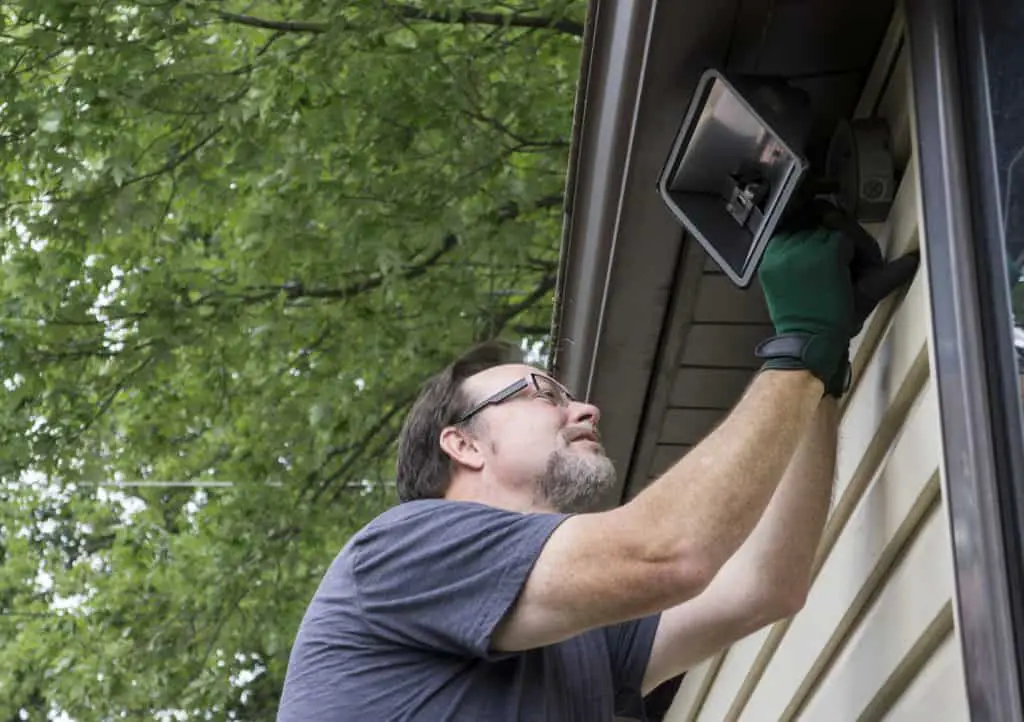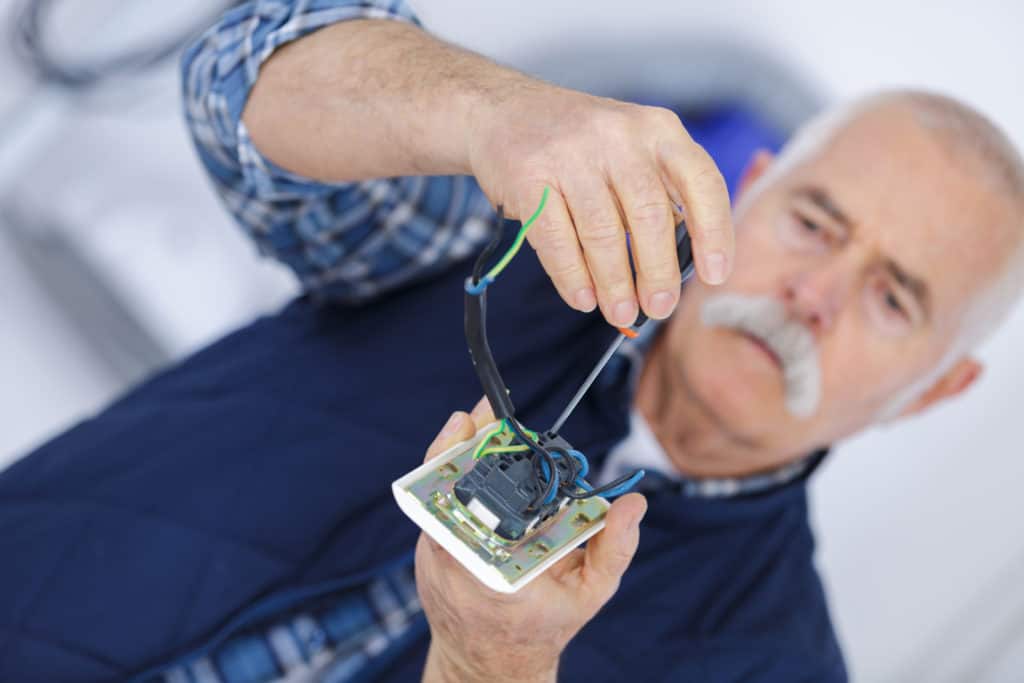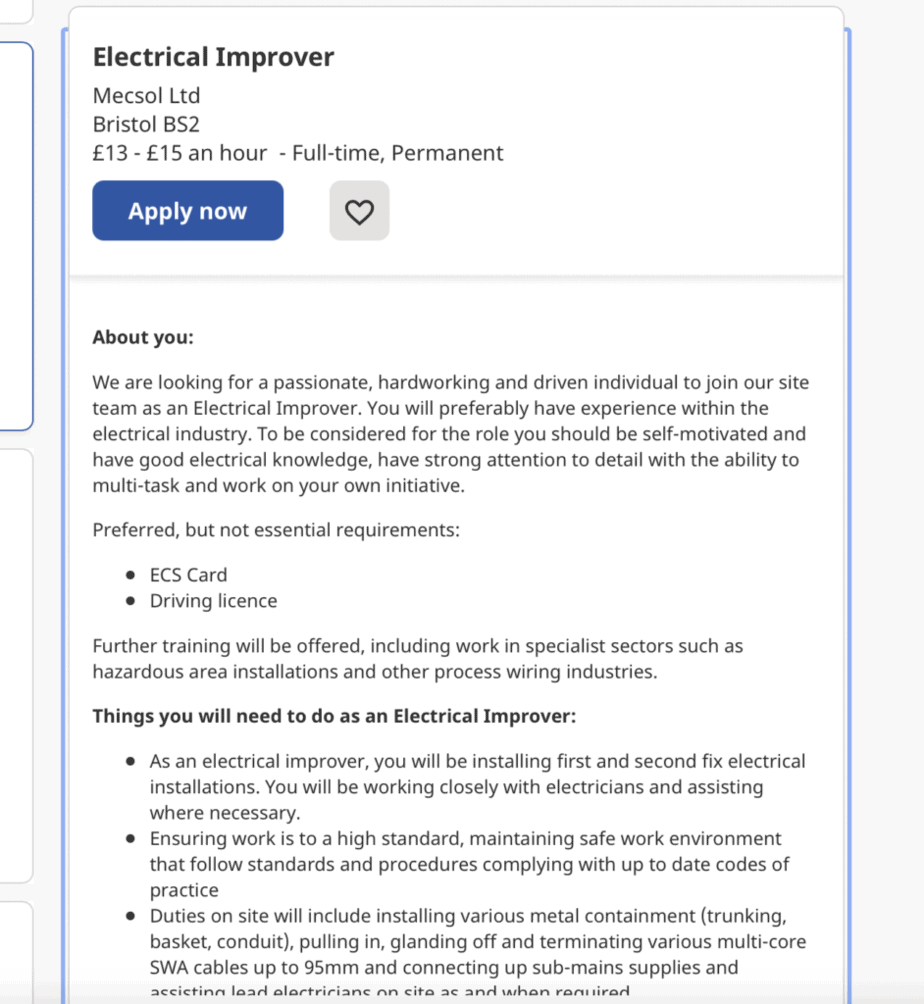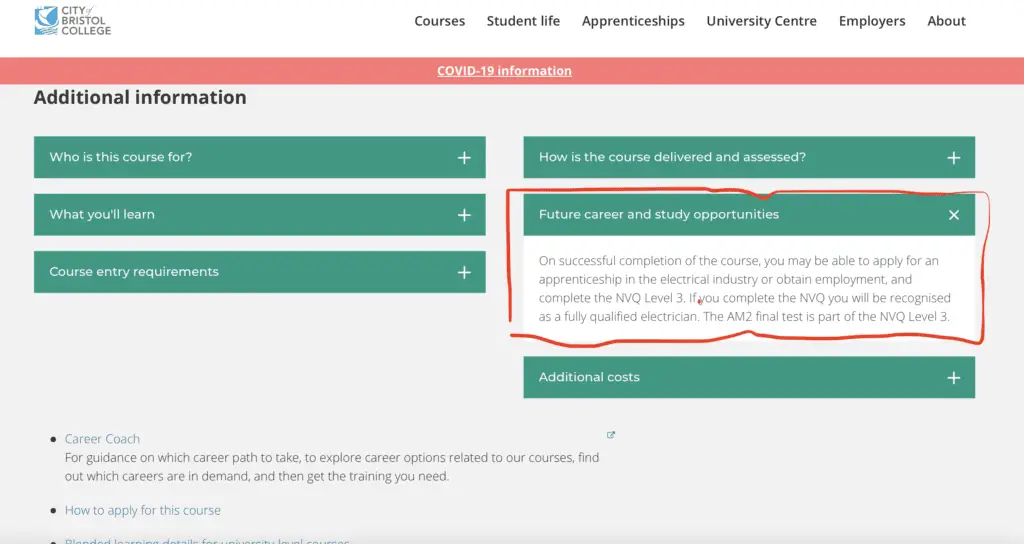I retrained to be an electrician later on in life. After an early career as a chef, I decided that a life in front of a hot stove was not the one for me, so I set about finding a route to becoming an electrician. I started my apprenticeship at the age of 26 so although not 30 and above, I faced many of the challenges that older people will encounter when trying to qualify as an electrician.
This article uses my experience, alongside the help of some of my colleagues who became electricians later in life, to provide a guide that others can use. I also phoned several local electrical training colleges to ask their advice.

Becoming an electrician at the age of 30 or above is absolutely possible. There are no age restrictions on becoming an apprentice and some employers favour the life experience that comes from selecting older candidates. There are also other routes to becoming a fully qualified electrician.
It is definitely possible to retrain and become an electrician later in life, but there are a few more hurdles we need to jump over and the route is not quite so clear cut as a fresh out of school apprenticeship.
Let’s start with what you need to be classed as a qualified electrician.
What Qualifications do Electricians Need to Have?
To be considered a fully qualified electrician a person requires:
- A level 3 NVQ in Electrical Installation
- A completed AM2 Exam
- A completed Apprenticeship program
A level 3 NVQ is the qualification given when a student has completed all the units required. These units included on-site practical assessments as well as a portfolio of completed practical work. An NVQ level 3 cannot be completed without carrying out real-world electrical installation work.
An AM2 is the name given to the final exam apprentices must complete at the end of their 4-year training. It is a 3-day exam that covers practical skill tests (such as installation, fault finding and testing of electrical circuits) as well as theory-based exams.
A completed apprenticeship certificate is awarded when a student has completed a recognised apprenticeship. Although not as vital to have this certificate, many employers request to see it as they favour those who can show they have done a full apprenticeship.
We can see that a vital part of becoming an electrician at any age is the onsite experience. We have to be able to complete a portfolio of practical work involving lots of photos of us working as well as 10 or so visits from our NVQ assessor to see us working on site, plus buying the necessary tools to be able to do the job!
In this regard, the apprenticeship route ticks all the boxes as we are able to get all the necessary evidence and tests under our belt as part of one overall package.
(As well as qualifications there are also personal qualities such as tattoo placements discussed in the article linked here)
Can You Become an Electrical Apprentice After the Age of 30?
There are no age limits to becoming an apprentice, I was 26 when I started the first year of my apprenticeship. Many employers find that older apprentices have a more mature attitude and are happy to employ them. However, there are cost implications for the employer hiring an older apprentice.
Although many employers like the maturity that comes with an older apprentice, the challenge older applicants have to overcome is the additional expense the employer is required to take on.
It costs a lot more to employ an older apprentice as the law in the UK states that they must be paid minimum wage according to their age after their first year as an apprentice.
The table below compares the cost of employing a teenage apprentice compared to older ones as of April 2022
Table Comparing the Hourly Wage Rates of Apprentice Electricians Based on their Age
| Age | Wage per Hour – First Year (£) | Wage per Hour Second Year (£) |
|---|---|---|
| Under 18 Years Old | 4.81 | 4.81 |
| 18 – 20 Years Old | 4.81 | 6.83 |
| 21 – 22 Years Old | 4.81 | 9.18 |
| 23 Years Old & Over | 4.81 | 9.50 |
The government website has a lot more information on minimum wages but I felt this was a handy table to get an idea of the extra wage costs involved for an employer after the first year of an apprenticeship.
Alongside the additional wages, the other hurdle we need to get the employer to overcome in order to take us on as an adult apprentice is the costs the employer must pay towards our apprentice training fees.
Apprentice training fees are often subsidised by the government for younger apprentices but for older ones the employer is usually left to foot the bill
The table below shows a difference in the fees an employer must pay to take on an adult apprentice compared with a younger apprentice
How much an Employer Must Pay for the Cost of the Apprentice College Course
| Aged 16 – 18 Years Old | Aged 19 and Above |
|---|---|
| Full Government funding & £1000 employer incentive | £18,000 plus a £900 + VAT employer contribution |
This information was taken from a training college called The Focus Group who are always very helpful and have a lot of knowledge they are happy to pass on. (link here)
It’s pretty clear the employer is going to have to pay a lot more to hire an apprentice over 30, however, all is not lost!
Advice For Getting an Electrical Apprenticeship Over the Age of 30
In my experience, the best advice is to apply for apprenticeships with larger companies. These companies are much more likely to be able to absorb the additional cost that comes with the older apprentice in return for the extra maturity levels they are likely to receive from the employee.
When I was hunting for an apprenticeship I sent out lots of unsuccessful emails to local electricians asking (practically begging) to be given a chance. I quickly realised that this was going to be fruitless as a small local electrician can not add the additional expense to their small business.
I had a lot more luck applying for apprenticeships with large companies such as water supply companies (they need electricians too) and eventually found success with a large energy supply company.
My advice is to target your efforts towards finding apprenticeships with these large companies rather than the small local ones. When you secure an interview, this article here will help with how to dress for the practical element of the apprentice interview.
It’s worth also pointing out that I worked as a general labourer on a building site for 8 months before getting my apprenticeship. The experience I gained, although not electrical, was a definite help at the apprentice interview stage.
Is it Hard for Someone Over 30 to Complete an Electrical Apprenticeship?

I found the experience of being an older apprentice to be really good. Everyone is respectful and appreciates you are working hard to learn a new skill. Overall, I would recommend an electrical apprenticeship to anyone whatever their age.
There are still jobs that all apprentices must do which can feel a bit more tricky as an older adult, such as making the teas and doing more than your fair share of sweeping up. However, I think just doing these tasks with good grace is the way to go.
Some apprentices (at all ages) kickback against these type of menial jobs but it just comes across as petulant and people are less likely to take the time to teach. Plus the average day as a qualified electrician isn’t exactly filled with glamourous jobs!
Do Adult Trainee Electricians Have to do an Apprenticeship?
It is possible to gain an NVQ level 3 without doing an apprenticeship, although you will still need practical site experience. Be aware though that some jobs request proof of a completed apprenticeship as they recognise that this 4-year structured training course provides a sound basis for the electrician they wish to hire
A friend of mine was made redundant from the postal service at the age of 35. He studied part-time at college to gain a level 2 in electrical installation. This qualification helped him to secure a job as an electrician’s mate where he was able to enrol himself again at college and complete his level 3 NVQ.
Below is a screenshot from the employement website Indeed. It demonstrates an employer offering the job of an electrical improver. This can be one way to get site experience and hopefully complete an NVQ alongside.

What is an Electricians Mate or Electrical Improver?
Electricians mate, or electrical improver, is the name given to an unqualified person who works alongside an electrician. Although they are unqualified, they often have some electrical experience and are often studying towards their qualification themselves.
This can be a great option for older people to become electricians but these jobs can be difficult to find (especially on a full-time basis). Once in the job and the employer sees that you work well, there is a strong chance you can get them to help you get enough practical evidence to complete an NVQ.
These are good route options for older people wishing to become electricians, but be aware it doesn’t have the structure of a full apprenticeship so there is more responsibility for the trainee to make sure they are getting all the experience they need.
Also see: What Does an Electrician’s mate do?
Can You Become an Electrician Studying Part Time at College?
You cannot become a fully qualified electrician by only studying at college part-time. In order to become qualified electricians, we must be able to complete a portfolio of practical work we have undertaken. You can however study at college to gain a solid understanding of the principles.
I spoke to the City of Bristol College who advised that we can do an entry-level 2 course in electrical installation and then go on to complete a level 3 electrical installation course if we wished. This would give a strong understanding of electrical principles and may help gain employment to be able to go on and complete an NVQ.
The screenshot from the city of Bristol college below demonstrates that the level 3 diploma in electrical installation allows you to go on and try and complete NVQ. The course in isolation is not enough to be a qualified electrician.

As we can see throughout the post the main hurdle we need to overcome to become an electrician later on in life is the practical experience.
It is most definitely possible and I know several people that have achieved it.
We can go the apprenticeship route and try and learn in a structured way like that. Alternatively, we can study the theory side at college and then try and use this experience to gain work (as an electrician’s mate or an electrical improver) in a role that allows us to sign up for and complete a level 3 NVQ
My advice would be to ring a local college and discuss it with them. Be very wary of online courses promising to make you an electrician in a few weeks, these are not genuine.

